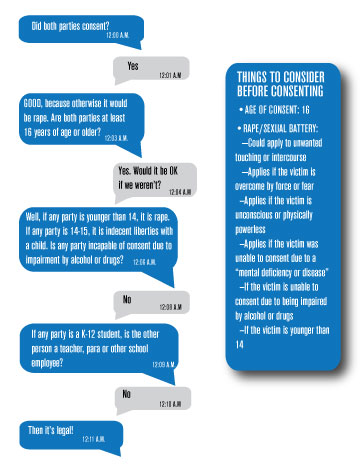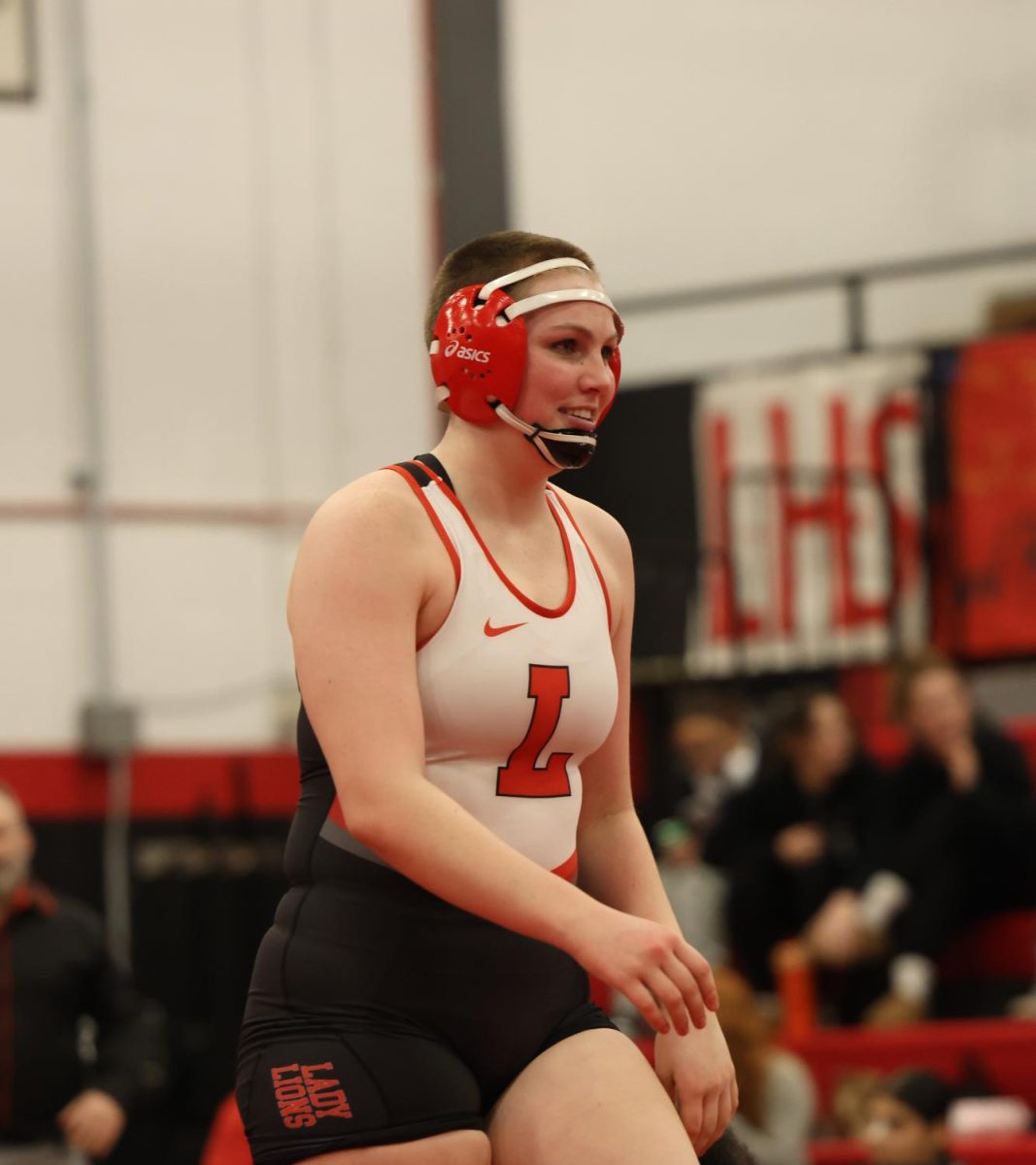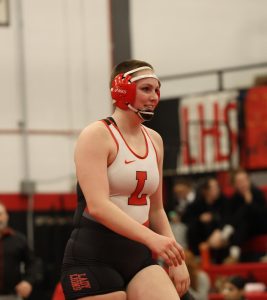Active consent becomes new norm
‘Yes means yes’ is changing how sexual consent is taught, police aims to ensure mutual agreement.
November 19, 2015
The old sex ed doctrine of “no means no” is on its way out as active, enthusiastic consent is on its way in.
The concept of giving consent is one of the biggest gray areas in sex education, especially as the commonly-accepted definition and expectations of what consent means are changing.
The long-standing rule that “no means no” is being challenged nationally as students, sex educators and state legislatures redefine sexual consent as “yes means yes.”
“Yes means yes” or active/affirmative consent requires all parties involved in sexual activity to verbally consent before and during the acts.
Rachel Gadd-Nelson, director of community engagement for the Sexual Trauma & Abuse Center, said people need to be comfortable having a conversation about consent.
“What makes navigating consent and sex so complicated is that it can be hard to know what to do or what’s expected of you,” she said. “It can be hard to communicate your feelings. It’s a lot of work to be able to have those conversations, and it’s something that we’re not taught a lot in our society.”
Although the issue of consent is more often discussed at the college level, students at LHS have questions, too.
“Sometimes high school students get confused about the idea of consent because so many times we take no answer at all as a yes,” junior Bridget Smith said. “Both male and female students feel peer pressured at some points to do things they don’t want to do/don’t agree with, but don’t say anything and others take their silence as a form of consent. Consent means saying yes.”
At Lawrence High, freshmen in Health 9 are taught to only proceed in sexual acts when “enthusiastic consent” is given. That means consent with no hesitation.
Gadd-Nelson explains it like this: “Consent has to be ongoing. It has to be enthusiastic. It has to be mutual, and it has to be communicated.”
To ensure that students are getting accurate information about consent and sex-related issues in general, universities often have resources to promote sexual health and relationship education, as well as regulations enforcing that active consent is followed on campus.
“Affirmative consent really puts it on both parties to be in agreement,” said Rep. Barbara Ballard, who introduced a bill in the state legislature last session that would require each university to adopt an active consent policy.
Two states, New York and California, have passed laws requiring all parties partaking in sexual activity to verbally consent.
Although Kansas does not have the same laws in place, it isn’t far behind. Ballard proposed a bill modeled after California’s law, which would require each regents school to adopt an affirmative consent policy as well as outline a sexual assault response procedure.
The bill proposed in February defines affirmative consent as “affirmative, conscious and voluntary agreement to engage in sexual activity.” It specifies that lack or protest or silence does not suffice as consent, and that consent cannot be given by someone who is heavily-intoxicated by alcohol or drugs.
It also says consent must be maintained throughout the duration of a sexual act, not just beforehand, and that someone accused of not getting consent cannot be pardoned by saying they believed they got it. Consent must be actively confirmed by both parties.
Ballard is experienced in the area of sexual assault policy. She started KU’s, and in 1993 she passed a resolution through the state legislature suggesting each regent school establish education programs about sexual assault and date and acquaintance rape. Although a resolution is non-binding, KU created the program promptly after its passage.
Twenty-two years later, Ballard has decided to push her policy through as a bill, with the goal of it becoming a binding law.
“This is an important enough issue and enough students are being affected by this so that we should have a law that says what protections this person should have if they are sexually assaulted,” she said.
The bill mandates that schools establish a course of action if active consent is not given or another form of sexual assault takes place. Policies must be “detailed and victim-centered,” meaning they outline the sorts of expectations someone who is the victim of a sexual crime should expect from the school.
“It’s assuring people quality of life, that they’re going to get fair treatment, that there’s consequences for actions that you do and it’s not just your rights, it’s other people’s rights as well,” Ballard said. “And it’s a part of a government’s responsibility is to protect all of its citizens.”
It also says the school needs to establish an outreach program for victims of sexual crime, that it should be in charge of educating the student body about the affirmative consent policy and that the outreach program will be included in incoming students’ orientation.
The Sexual Trauma & Abuse Center, formerly known as GaDuGi SafeCenter, teaches patrons about the importance of consent as a way of ensuring healthy sexual relationships.
“Consent is really…a big part of our education because if you don’t have consent, then it crosses into the definition of sexual assault,” Gadd-Nelson said. “The education around consent is crucial.”
KU is, in many ways, ahead of the bill as far as sexual assault policies go. The university sexual harassment policy, for example, goes into specifics when defining consent, among other terms.
Sex educators on campus use the acronym KAV, for Knowing, Active and Voluntary, to explain consent.
The KU Peer Health Educators function much like what would be mandated by the bill. It is an organization of students and staff who go to different locations on campus and give informational presentations and health resources to students.
“Whenever we talk about healthy relationships, we talk about consent as well,” said Jenny McKee, the sexual health coordinator for the Peer Health Educators. “And consent can be kind of confusing for students on our campus, or for anywhere. It’s not something that’s typically taught in sexual health education classes before students come to college.”
McKee said that many students who attend the university come from school districts that don’t discuss consent in their health classes and are often only provided with abstinence only sex ed. She said USD 497 is likely one of the few districts in the Midwest that provides comprehensive lessons about consent.
“When you get abstinence only sex education, you’re not talking about consent,” she said.
McKee emphasized that exploring sexuality is healthy and that students should have the tools to engage in sexual activity safely. She also said students often respond best to hearing about consent from their peers opposed to authority figures.
“We have a sex positive culture,” McKee said. “I believe that we’re also working to prevent acts of sexual violence on our campus.”















